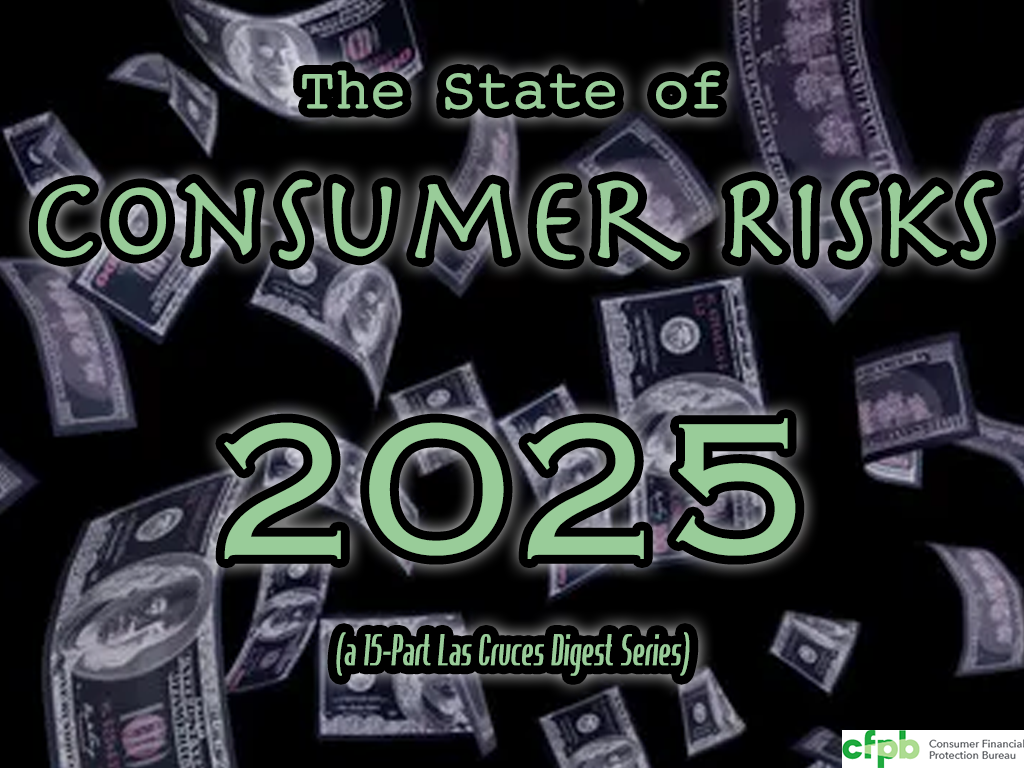-and-
Report addresses issues faced by borrowers with federal and private loans.
Source: Consumer Financial Protection Bureau
WASHINGTON, D.C — On December 16, 2024, the Consumer Financial Protection Bureau (CFPB) released a special edition of its Supervisory Highlights describing a range of unlawful activities identified by CFPB examiners across student loan markets. The report covers violations related to student loan refinancing, private lending and servicing, debt collection, and federal loan servicing.

“Companies break the law when they mislead student borrowers about their protections or deny borrowers their rightful benefits,” said CFPB Director Rohit Chopra. “Student loan companies should not profit by violating the law.”
Student loans represent the second-largest form of U.S. consumer debt at more than $1.7 trillion in total outstanding balances. Within the past year, many student borrowers faced challenges, including as 28 million federal student loan borrowers returned to repayment following the end of the COVID-19 payment pause. Today’s report details how CFPB examiners identified instances of companies engaging in illegal practices across student loan markets, including:
- Lenders misleading borrowers and failing to carry out their instructions for refinancing: Refinancing or consolidating federal loans through a private lender results in the loss of important federal protections. CFPB examiners found that lenders gave misleading impressions that borrowers who refinance might not lose access to federal loan cancellation programs. Lenders also failed to re-amortize consolidated loans following borrowers’ requests to exclude federal loans.
- Private lenders deceiving borrowers or denying benefits: Supervision found that lenders unfairly denied discharge applications for borrowers who were eligible based on Total and Permanent Disability status. Lenders also inaccurately claimed certain borrowers were ineligible for autopay discounts or falsely advertised to borrowers that they could suspend their loan payments if they lost their job but later eliminated this benefit.
- Servicers failing to address claims related to school misconduct: Many private student loans made directly by schools include provisions allowing borrowers to challenge their loans due to school misconduct, regardless of who holds the loans. CFPB examiners found that servicers misled borrowers about their right to challenge their loans and failed to properly consider most borrowers’ challenges to their loans based on school misconduct. The CFPB directed the entities to create robust systems for evaluating borrowers’ claims of school misconduct.
- Servicers distributing contracts allowing illegal collection tactics: CFPB supervision uncovered institutional loan contracts with provisions that would allow schools to illegally withhold students’ academic transcripts or access to classes and other education services in the case of default. Some servicers also falsely threatened students with legal action.
- Federal loan servicers harming borrowers during return to repayment: CFPB supervision observed that federal loan servicers failed to provide, for extended time periods, adequate ways for borrowers to manage key loan issues by phone. Servicers also issued deceptive billing statements with incorrect payment amounts and due dates, and debited unauthorized amounts. Significantly, examiners also uncovered numerous problems with how servicers processed borrowers’ applications for income-driven repayment plans.
When CFPB examiners uncover problems, they share their findings with companies to help them remediate violations. Typically, as with some of the instances identified within today’s report, companies take actions to fix the identified problems. For more serious violations or when companies fail to take corrective actions, the CFPB opens investigations for potential enforcement actions.
-and-
Today’s report builds on the CFPB’s recent oversight of the student loan market, including the supervisory response initiated during the federal student loan return to repayment. For more than ten years, the CFPB has supervised the student loan market for risks to consumers, and has taken multiple enforcement actions for shoddy student loan servicing practices. In November, the CFPB released the annual report of the Student Loan Ombudsman, highlighting the severe difficulties reported by student borrowers due to persistent loan servicing failures and program disruptions.
Read the special edition of Supervisory Highlights.
Consumers can submit complaints about financial products and services by visiting the CFPB’s website or by calling (855) 411-CFPB (2372).
Employees who believe their company has violated federal consumer financial protection laws are encouraged to send information about what they know to whistleblower@cfpb.gov. To learn more about reporting potential industry misconduct, visit the CFPB’s website.





